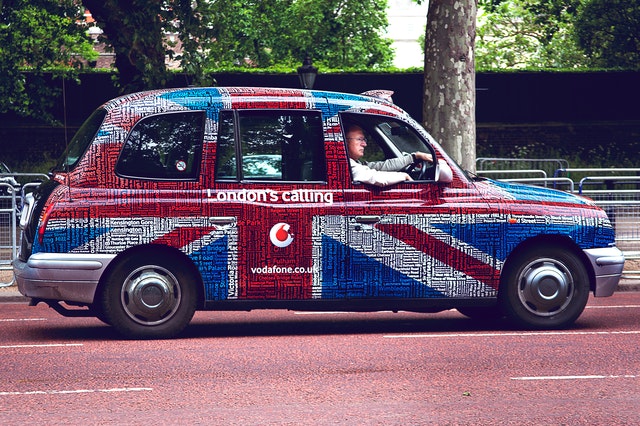Hello from the quarantine, lovely people, I hope you’re staying healthy and sheltered, wherever you are. Today I decided to touch upon a subject that’s very dear to me and of interest to you – I know that because you either asked me directly what copywriting is or you’ve found my website using such keywords on Google.
If you’re new to my blog, I invite you, for starters, to take a look over these articles, too (here and here). Today, however, we’re going to only talk about copywriting as a science and creative process – what copywriting is, according to specialists and according to this writer, as well.
I chose copywriting as a topic for my thesis a while back out of passion and frustration, too. Why? Because no one on Earth (and by Earth I mean college) was able to explain it to me properly. As a quick observation, I think it’s sad that, over the course of 3 years of studying Communications and PR in Brașov, I only heard about copywriting once or twice in passing and even then in a very summarized, grossly superficial manner.
But…we’ll be doing things differently now. Without further ado, have a seat if you’re not already sitting down and let’s see what this whole “copywriting” thing is all about:
Copywriting knowledge – who should have it and why?
In the following minutes, we’ll analyze, explain and get in depth on “copywriting” as a concept, as well as its influence and importance in advertising, branding and on the internet. If you ask me, I think it’s disastrous, as communications, marketing or digital experts in general not to know one or two things about copywriting, least on a basic level. I find it even more disastrous that this beautiful profession, that of a copywriter, doesn’t get the attention and credit it deserves on the job market in Romania.
Currently, especially due to the coronavirus crisis and Romania’s albeit late efforts towards digitalization as a direct response to this pandemic, we are starting to see signs of change for the better (companies are starting to understand, belatedly, of course, that work from home is feasible and applicable in more industries than previously thought).
On that note, I also hope that companies will realize the importance of copywriting and the pressing need for professionals in this line of work because a good copywriter can make the difference between notoriety and anonymity.
Copywriting helps virtually everybody – I mean it. Whether we’re creative directors in an advertising agency, whether we want to create a website and a strong online presence or we’re brand managers seeking to make our product stand out on the market by investing it with the power of a brand and giving it a strong brand personality.
Whichever the case, we should not lose track of the importance of copywriting in all of the above and give it the attention it deserves to reap significant benefits. Even personal branding is largely built via the use of persuasive texts – tell me what you post on LinkedIn and I’ll tell you who you are.
Basic copywriting knowledge helps anyone come up with clear messages that the target audience can understand and write texts with precise end-goals (driving actions, increasing sales, increasing the number of subscribers on a specific platform, boosting brand notoriety etc.).
What is copywriting? The specialists weigh in…

In advertising, we often find an array of conceptual confusion surrounding terms such as advertising and publicity (they are different things, but that’s a topic for another time, maybe). The same applies to copywriting (side-note – it has NOTHING to do with the term “copyright” or the copyright law).
Because of this reason precisely, professionals and the general public find it difficult to define copywriting as a science, as well as the role of the specialist or service provider (the copywriter). To make things more straightforward, I compiled a list of my favorite copywriting definitions because they are simple, concise and easy to understand:
According to copywriting.com, “Copywriting is the art and science of writing to promote a product, a business, a person or an idea. And carefully selecting, editing, weaving and constructing those words in a way that they’ll persuade the reader into taking a specific and measurable action.”
I think that the above definition is the most comprehensive one because it also delivers the essence of a copywriter’s attributions. There is a largely spread misperception that a copywriter only edits texts (that’s why we get paid in sunflower seeds money because, haven’t you heard, anyone can write). However, a less known fact is that every text is built with a specific goal in mind, a target that must be achieved.
In other words, we are not writing in the void. You can write beautifully, have an elegant phrase structure and flawless grammar but that won’t matter if the text hasn’t met its goal (didn’t manage to persuade, didn’t drive specific actions, didn’t create conversions or boost sales). You can say, in this case and, to my mind, at least, that you failed, copywriting-wise. In other words, you were a good writer, not a good copywriter.
Tom Albrighton has an even better definition to offer in his book, “The ABC of Copywriting”, which is “Copywriting is the optimum use of language to promote or persuade.”
Last but not least, one of the best online copywriting resources also provided a pertinent definition of the concept – according to copyblogger.com, “copywriting is the art and science of utilizing words in a strategic manner (whether in written or spoken communication) to determine people to take a certain action.”
What is copywriting? This writer weighs in..

I don’t consider myself an infallible authority on the topic, but I will try to come up with some personal thoughts, first in the boring, academic fashion, then with my clumsy, day-to-day words, like I’m sitting right beside you sharing sweet nothings over a cup of coffee.
So, let’s begin – I would say that copywriting is a type of writing largely used in advertising whose purpose is to persuade the target audience to take the action desired by the service provider – the copywriter.
In other words, if I manage, through words (excuse the repetition) to make you take the action I want, without sinking low enough to use pseudo-journalistic, unethical means such as click-bait, manipulation or online propaganda, instead only through clean persuasion based on arguments, language and stylistic means, then I delivered quality copywriting.
I would also add something very important here. Copywriting is equally an art and a science – it involves literary talent, abiding by grammar rules and a new, fresh and creative approach to writing various texts (slogans, product descriptions, commercial headlines), as well as following good practice rules and principles (e.g.: the “less is more” rule) and avoiding frequently found mistakes in order to truly reach its intended goal.
Moreover, if someone tells you they’re a copywriter, but they don’t know a thing about SWOT analysis, target audience analysis, marketing research, surveys etc., then they still have a long way to go. What do I mean by that? Just to emphasize what I said before – we are not writing in the void, purely for ourselves or to make a brand executive happy – we are also writing for people, therefore we must understand and anticipate their needs and answer accordingly.
No one will ever buy anything if they don’t see a symbolic or practical use in upholding a brand’s principles or choosing THEIR products out of a thousand identical ones.
The same goes for copywriting – no one will connect with a text that’s filled with platitudes, fake-ness, repetition and self-praise (it’s even more gross when it comes from us to us – meaning the brand praises itself because that’s what some marketing executive found fit to communicate).
And, to go back to my observations on marketing research, too – we’ve all seen what the lack of it does (the internet is nowadays filled with fake-news and so-called persuasion via the use of….nothing, least nothing of value).
Good copywriting is backed up by arguments, in other words, you don’t just SAY what you are, you also show it. There is a major difference between broadcasting clichés such as “we are a market leader”, without having the verifiable numbers to attest to that and without proving, through actions, that you are what you say you are.
What fields does copywriting relate and connect to?

Copywriting is a valuable skill that can be used in a variety of fields, from advertising and branding to the online world. In advertising, the copywriter is responsible with writing messages that best convey the creative concepts of a campaign or an ad and, most often, it’s his skill or lack thereof that determines if the target audience will understand the idea behind the creation or not.
And, on that note, lovelies, you can come up with your own examples here, because I’m sure you have plenty – we all know REALLY cool ads that paradoxically didn’t manage to sell. If we interpret that reality through a copywriting lens, then they failed. If we see them as means of artistic expression, instead, and send them out to get awards at Cannes, then it’s a whole different ball game.
As part of branding activities, copywriting plays a vital, fundamental role in positioning a product or a service, in building, strengthening and singling it out on the market and, for this reason precisely, copywriting shouldn’t be neglected as part of an efficient brand strategy. I talked more in depth about the copywriter’s role in building brand identity here.
A web copywriter’s activity, on the other hand, is defined by adapting to the means of communication – in this case, the internet, through the manner in which he manages to communicate using very short, concise and well-structured messages.
We pay less and less attention, we scroll endlessly, we read 10 things at once – therefore, wouldn’t you agree that we need talented people who can make us stop and pay attention to THAT article, out of a never-ending list of texts that bombard us in rapid succession? I think you might.
Where can we find copywriting?

Copywriting is a profession that’s typically associated with advertising and sales. A copywriter’s job is to gather information and convey it via his texts in a captivating, creative and educational manner. Although a large part of the employment opportunities for a copywriter can be found in advertising, they are not limited to this field, as there are a bunch of other industries they can also choose, such as PR, business or online copywriting.
I wrote a few pieces on online copywriting in the past, too, if you’re interested to learn more (here and here).
Through the term advertising copywriting we understand an activity that involves using writing to sell products and services. From captivating headlines to texts that drive action, copywriters are capable of transforming a passive audience that only sees and listens into buyers.
Advertising copywriting is practically the art of creating written content meant to complete the visual and graphic elements of an advertising campaign. What ad copy mostly does is market a product to a specific consumer audience or, simply said, persuading a specific target audience to make a certain action, all via the use of written communication. We can find copywriting examples on posters, TV ads, radio ads, on websites and in brochures.
And, because we’ve talked the talk, let’s also walk the walk – you can find the best examples of copywriting in advertising that I’ve gathered with superhuman efforts (not really) here and here.
Why do we need copywriting in advertising?

Advertising is an industry that is defined by creativity – it is an industry that needs creativity to survive – brands race each other in the quest to come up with unique campaigns and creative concepts, to stand out from the competition. Same goes for copywriting – this activity shouldn’t be seen or analyzed as separate from the advertising industry, but as an integral part of it.
David Ogilvy, another guy I love from the bottom of my heart, considered to be the pioneer of advertising copy hit us right in the brain with this one. He states that, in order to be a good copywriter in advertising, it’s not enough to be well-versed in the art of the written word, you must also be keen on human psychology.
He believes that a copywriter who knows the success factors – the elements that induce the desire to read an ad from top to bottom in a person – can boost audiences a lot more than one who doesn’t.
Which is why, although copywriting is not only found in advertising, as I mentioned above, but is a key component of advertising, promotion, publicity, PR and marketing, its most efficient and spectacular manifestations can still be found in advertising, as there are many connections and similarities between advertising and copywriting.
Advertising also offers a greater degree of flexibility, which is why the art of the written word, the copywriter’s main weapon, finds its most appropriate and generous resources in advertising.
Conclusions
I hope I managed to answer the question – “what is copywriting?” for you, at least partially.
Still, consider this article a mere introduction – keep an eye out on the blog because there will be more pieces on this topic soon. We’ll also talk about things such as “why should I invest in copywriting?”, as well as some basic principles to sell and persuade via words.
Thanks for stopping by and, as always, if you have any further questions, don’t hesitate to drop a comment down below. I am also open to receiving swear words directly on my mail address (you can find it in the footer).
See you next time!
Like what you read? Pass it on!
